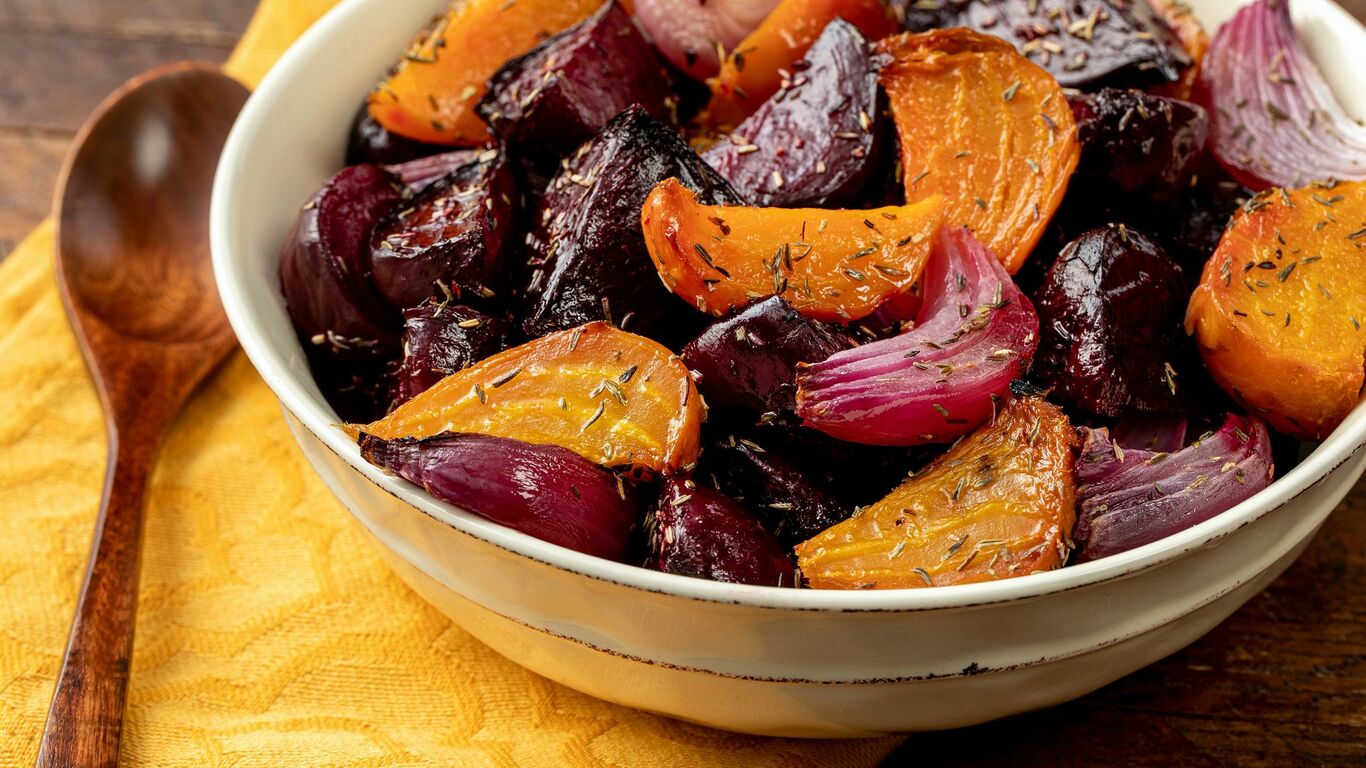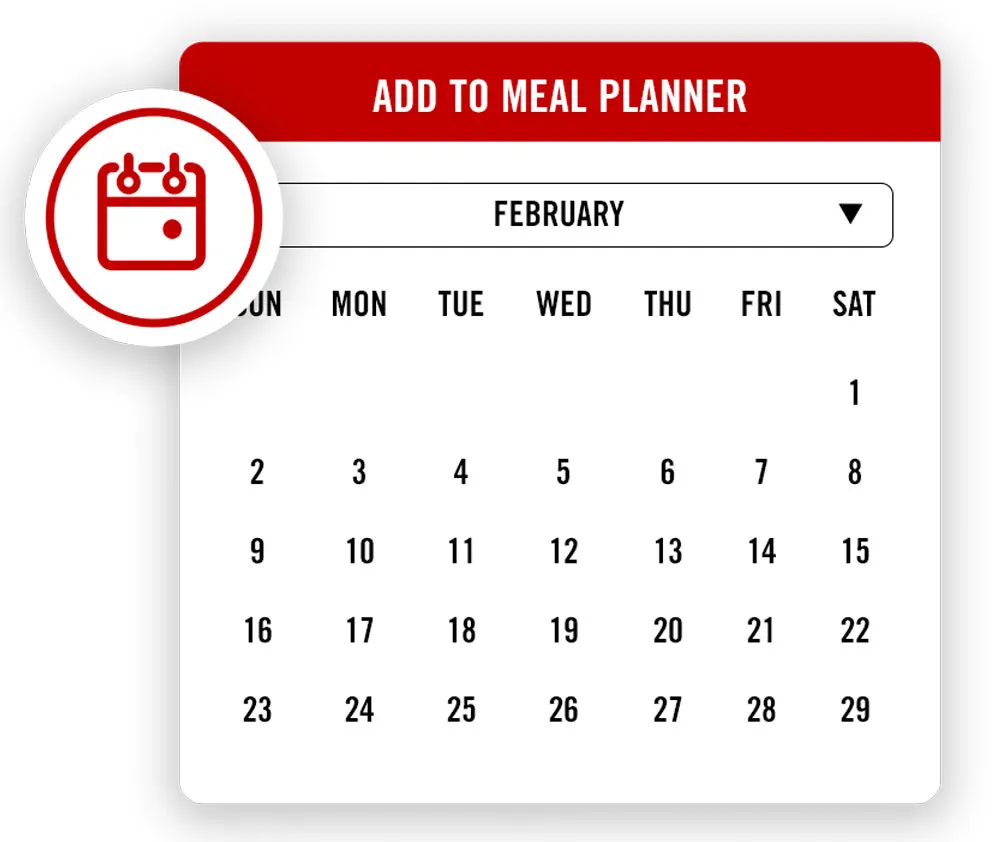Many people have strong feelings about beets (usually on the negative side), but learning how to cook beets properly can change minds for good. If you don't love beets, using one of these methods to prepare beets for roasting, steaming and boiling might just change your mind
Beets, or beetroots, are jewel-toned root vegetables. But beets, with their shades of ruby red and sunset gold, are among the most misunderstood–and passionately disliked–vegetables. Beets can absorb a great deal of mineral flavor from the soil in which they're grown. That taste is appealing to some. But to others, it's a behemoth to be tackled before a beet finds its way to a plate.
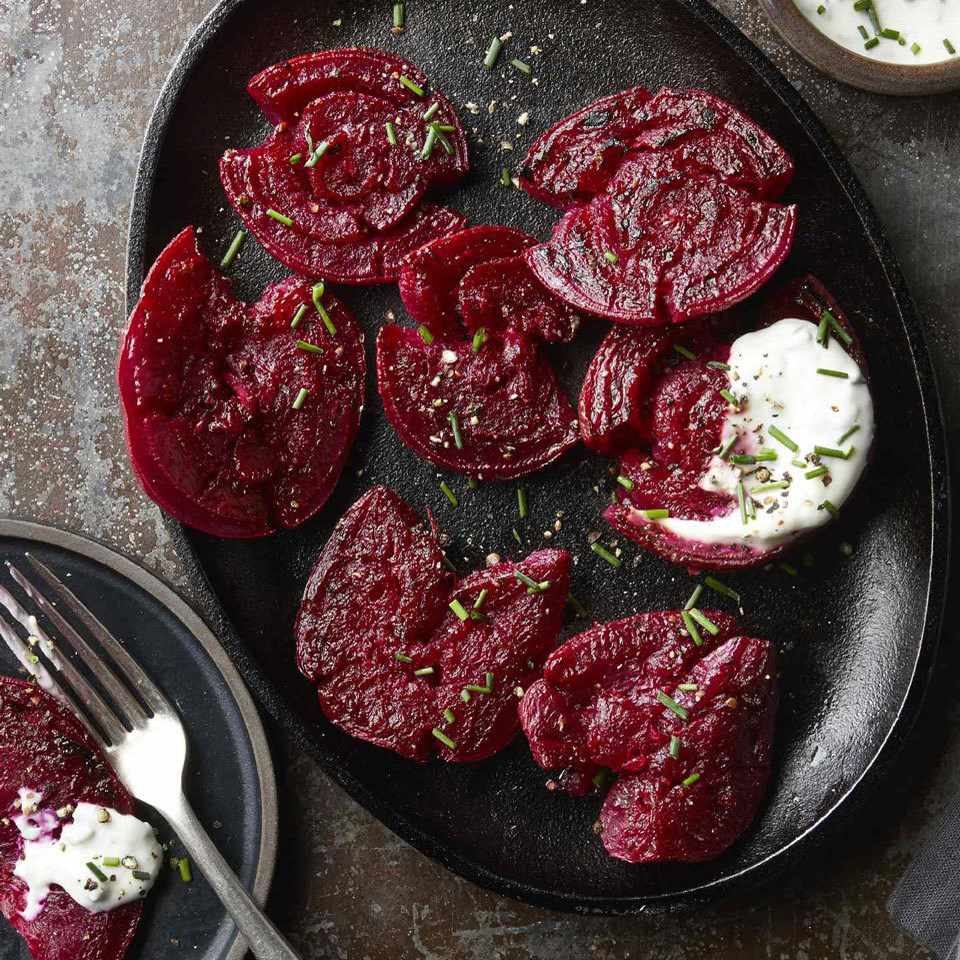
Many individuals first encounter these vegetables in canned, pickled or boiled form. While beets can be delicious in all these preparations, they may not be the best representation of this sweet and earthy vegetable for you.
The key to cooking beets and really enjoying them is finding a way to prepare them that makes you appreciate these deliciously complex vegetables. Here, we'll show you how to cook beets and work them into recipes so you'll actually enjoy them.
How to Prepare Beets
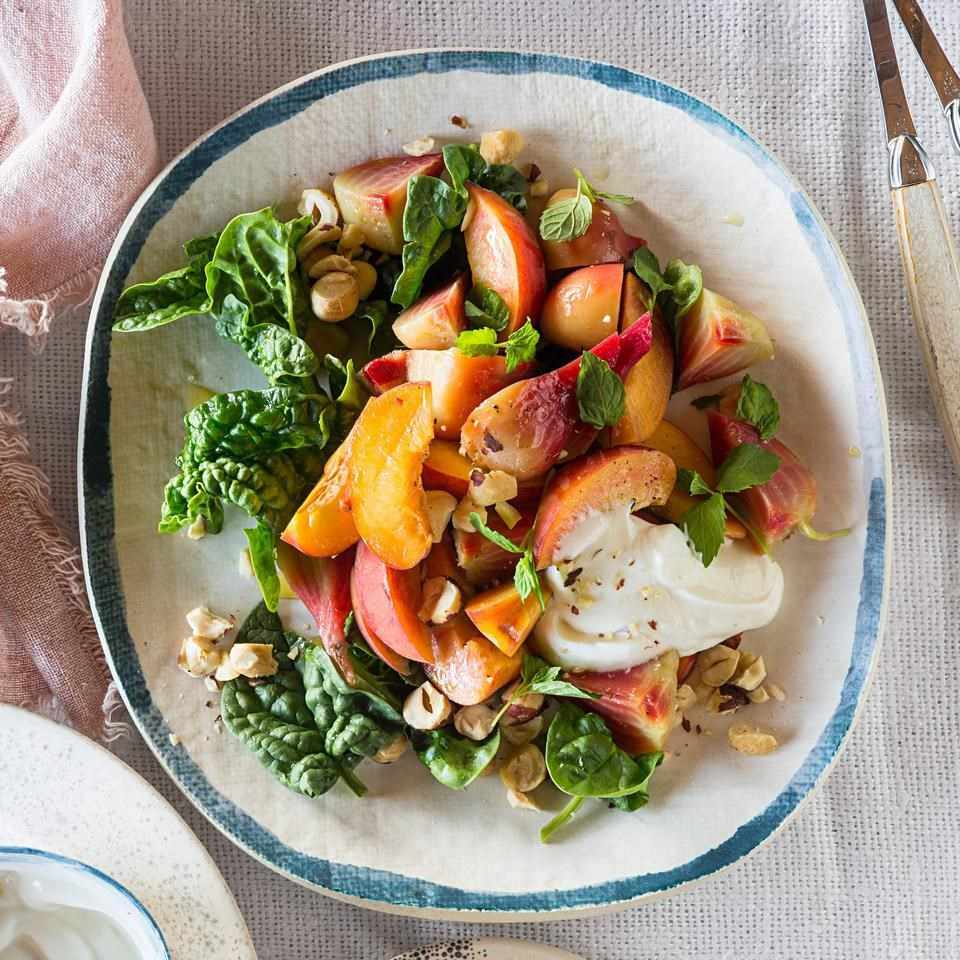
When you bring them home from the store, you need to prepare beets for storage unless you plan to cook with them right away. Properly stored beets will last longer and have better flavor.
1. Cut off beet greens, leaving at least 1 inch of stem attached.
2. Wrap lightly in paper towels, and store in a plastic zip-top bag in the refrigerator for up to two weeks.
When you're ready to cook beets, remove them from the refrigerator, and gently scrub them with a vegetable brush to remove dirt and debris. After the beet is washed, you will prepare it according to how you plan to cook it.
How to Cook Beets
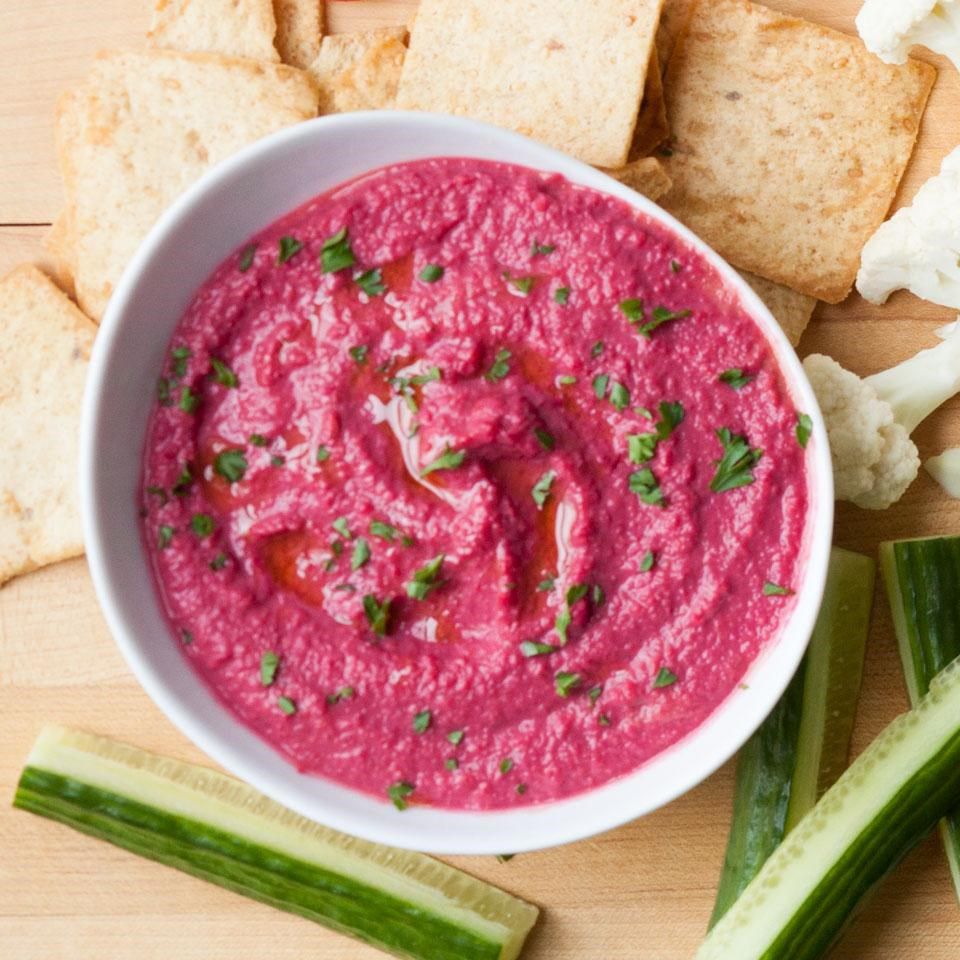
Beets are delicious in just about any manner-boiled, roasted, steamed or grilled. The key is experimenting with the different beet-cooking techniques to find one that you prefer.
Keep in mind that both red and yellow beets are sources of natural dyes, and they will stain anything they touch, including your kitchen linens and hands. Handle them appropriately. Paper towels or cloths can help prevent staining. You can also wear latex gloves to protect your skin.
Once beets are cooked, your possibilities for using them are vast. You can use cooked beets in salads, to make hummus or to blend into smoothies. They can be diced for slaw, quartered for a grain bowl or mashed to make a dip or spread. Their thick and chewy texture is great in a galette or quesadilla.
If you don't plan to use the cooked beets right away, peel them and store in an airtight glass container for two to three days.
How to Roast Whole Beets
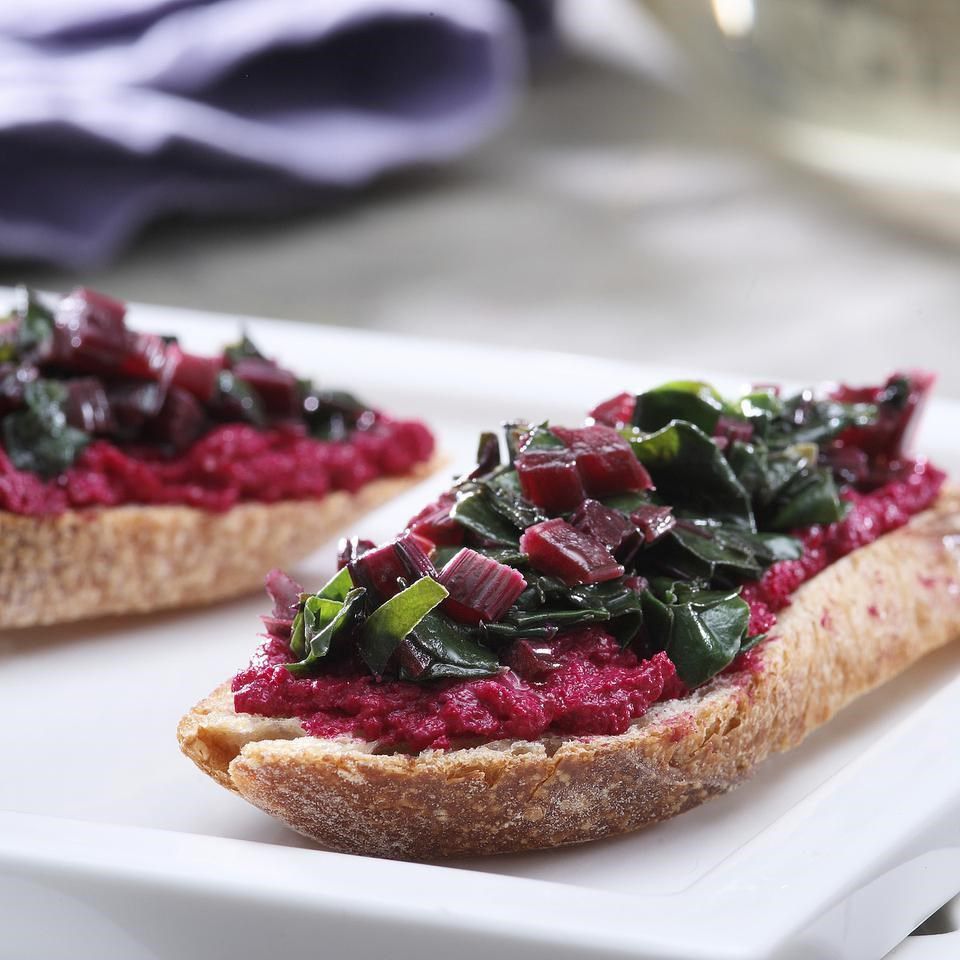
Roasted beets are intensely sweet, with subtle mineral flavors. Roasting whole large beets takes almost an hour, so this is a great option on a weekend when you can sit around and wait. Pick smaller bulbs if you need roasted beets in less time.
1. Dry cleaned beets with a towel to remove excess moisture. Remove taproot. In a medium bowl, combine 2 to 3 medium beets with a bit of olive oil, salt and pepper. Stir to coat.
2. Wrap all the beets in foil and place them on a foil-lined baking sheet.
3. Roast at 400°F until fork-tender–the time should be adjusted depending on the size–30 to 45 minutes for medium beets, or 40 to 60 minutes for larger ones.
4. Remove the beets from the oven and let cool for 15 to 20 minutes. Trim off stems, and peel off the skin.
Try These: Healthy Roasted Beets Recipes
How to Roast Beet Wedges
Cutting beets into quarters or wedges will speed up roasting time but still produce the intensely sweet flavor.
1. Dry cleaned beets with a towel to remove excess moisture. Trim remaining stems and remove taproot. Cut the beets into wedges or quarters. Toss with olive oil, salt and pepper.
2. Pour the beet wedges onto a foil-lined baking sheet in a single layer. Roast at 400°F until fork-tender, 20 to 30 minutes.
3. Remove the beets from the oven and let cool for 5 to 10 minutes. Peel off the skin.
How to Microwave Beets
Microwaving beets is one of the fastest ways to cook them, and they will retain a lot of earthy beet flavor. Small to medium beets are ideal for this beet-cooking method. Large beets may turn rubbery on the outside before the inside is tender enough to eat.
1. Place cleaned beets in a microwave-safe dish. Add enough water to cover the bottom of the dish. Cover with plastic wrap.
2. Microwave on High until fork-tender, 12 to 15 minutes, turning once.
3. Let stand for 5 minutes. Remove the taproot, trim the stems and remove the skin.
How to Steam Beets
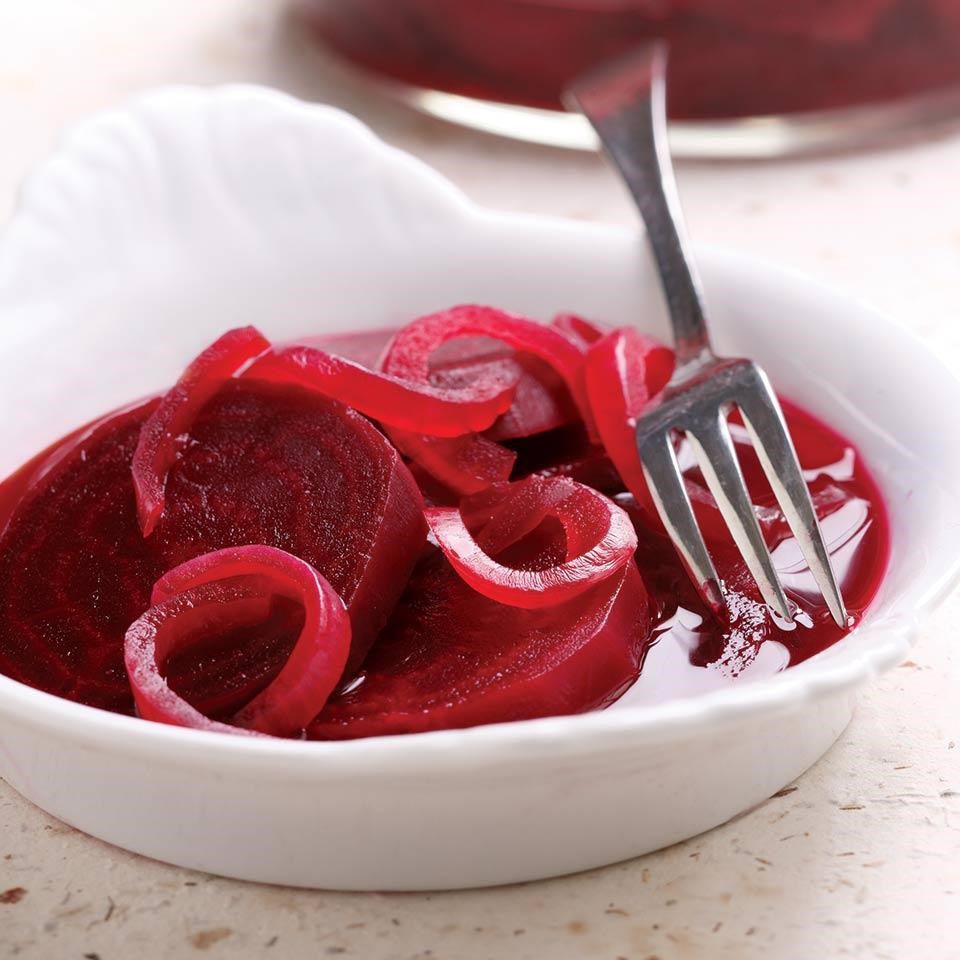
Steaming beets is a healthful cooking method because the beets retain most of their vitamins and minerals-they're not boiled out in water-and stay incredibly vibrant. Plus, steaming small beets or beet quarters is quick and easy for weeknights.
1. Remove remaining stem and taproot from cleaned beets.
2. Cut each beet into 1/2- to 1-inch cubes or wedges.
3. Bring a small amount of water to a rolling boil in a large stockpot. Place a steamer basket in the pot so its bottom rests above the water level.
4. Put the beet pieces in the basket, cover the pot and steam until fork-tender, 10 to 15 minutes for smaller pieces or 20 to 30 minutes for medium and large ones.
5. Remove the beets from the basket and let cool for 5 to 10 minutes. Remove the skin.
How to Boil Beets
Boiling produces tender beets with a less intense flavor. Boiling beets also pulls a great deal of color out of the root vegetables into the hot water. That's OK for flavor, but be mindful that the color of the beet may change a bit in the process.
1. Trim off remaining stem and taproot from cleaned beets. Place the beets in a large saucepan and cover with water.
2. Bring to a boil, then reduce heat and simmer until fork-tender, 25 to 35 minutes for medium beets or 45 minutes to 1 hour for large beets.
3. Immediately move the cooked beets into ice-cold water, and peel the skins off.
How to Make Beet Chips
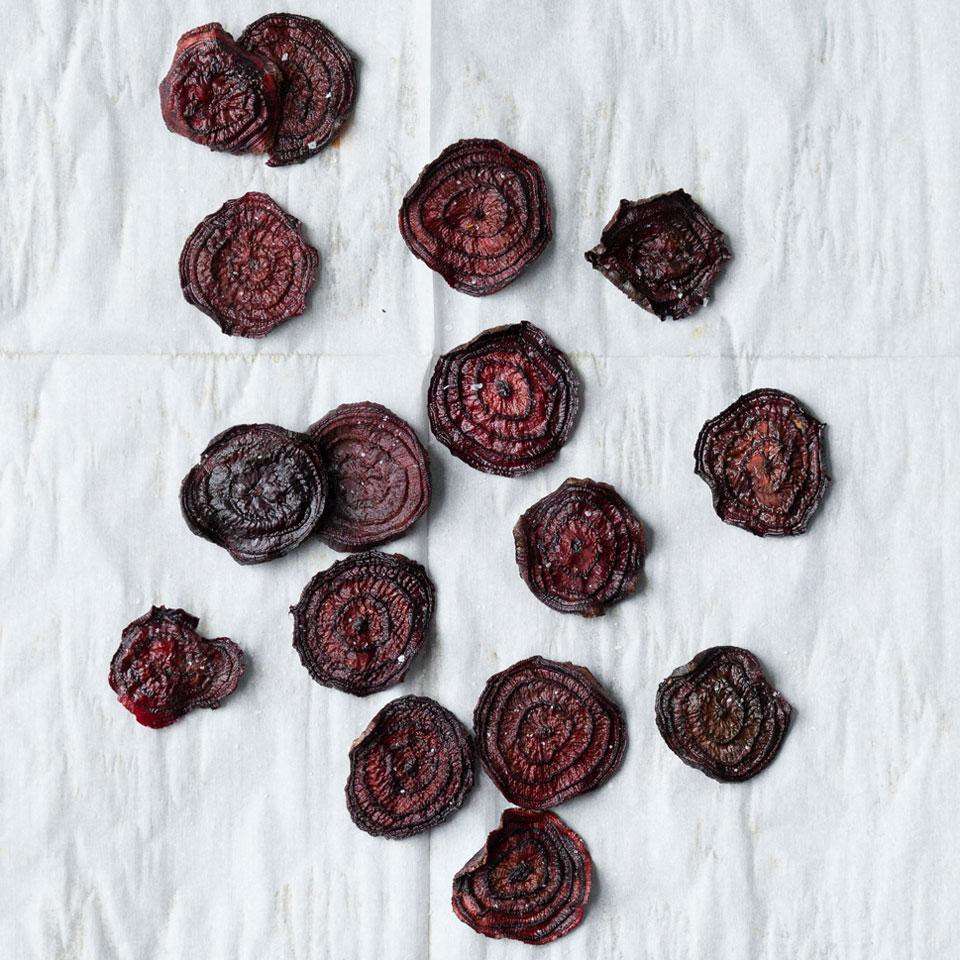
A low-temp bake turns thinly sliced beets into crispy, sweet veggie chips.
1. Trim off remaining stem and taproot from cleaned beets. Use a mandoline or sharp knife to create chip slices that are consistently thin.
2. Toss the beet slices with olive oil and salt. Spread in a single layer on a parchment paper-lined baking sheet.
3. Bake at 200°F for 3 hours, flipping at the halfway point.
4. Remove the chips from the oven and let cool for 30 minutes.
How to Cook Beet Greens
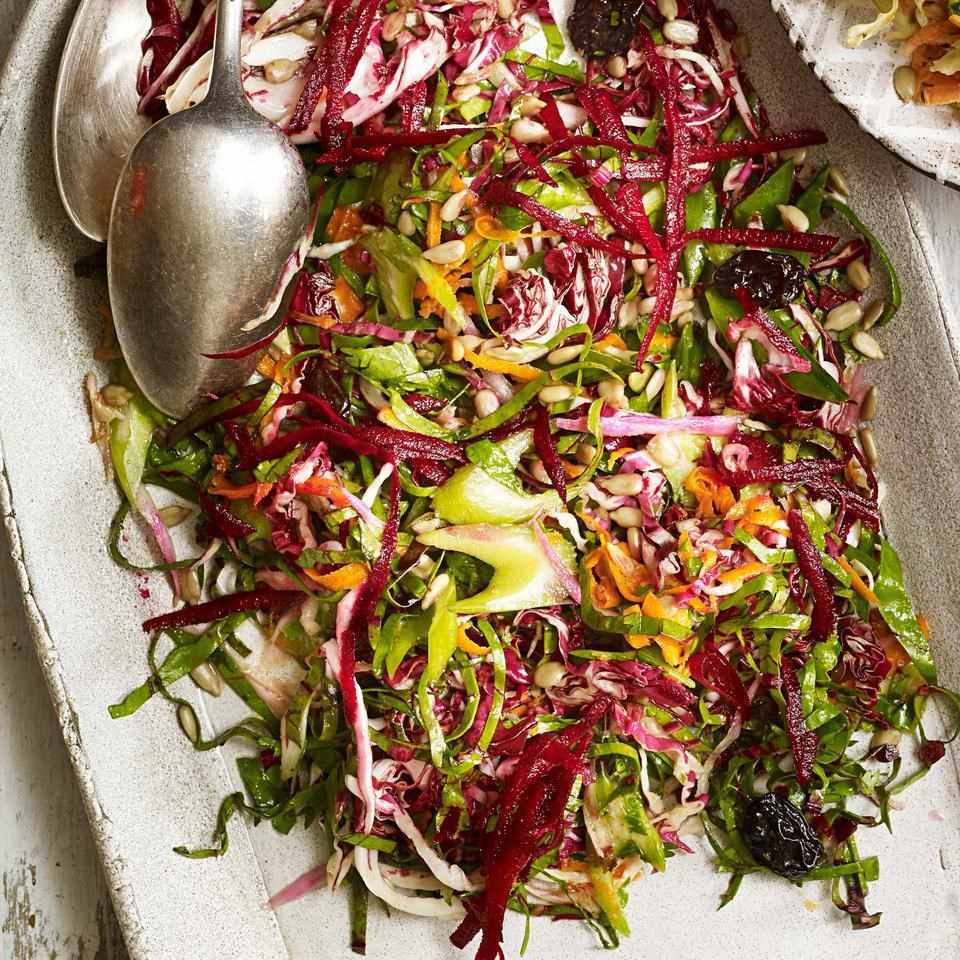
Those lovely leafy greens at the top of the ruby-red bulbs are entirely edible. They can be delicious as part of a main dish or as a side dish, too. Treat beet greens the way you would collard greens, kale or chard. They taste similar, too, with earthy, slightly bitter flavors. Beet greens can be eaten raw, but they may benefit from a quick sauté with garlic and butter. Braising can also make them meltingly tender.
1. After removing the beet greens from the bulbs, wash each leaf and pat dry. Slice the leaves and stems, separating the two as you cut.
2. In a large skillet over medium-high heat, warm olive oil and sauté minced garlic. Add the stems, and cook for 2 minutes. Add the leaves and 2 tablespoons chicken (or vegetable) broth. Cook for 2 minutes, stirring frequently. Season with salt and pepper. Serve warm.
Can You Eat Raw Beets?
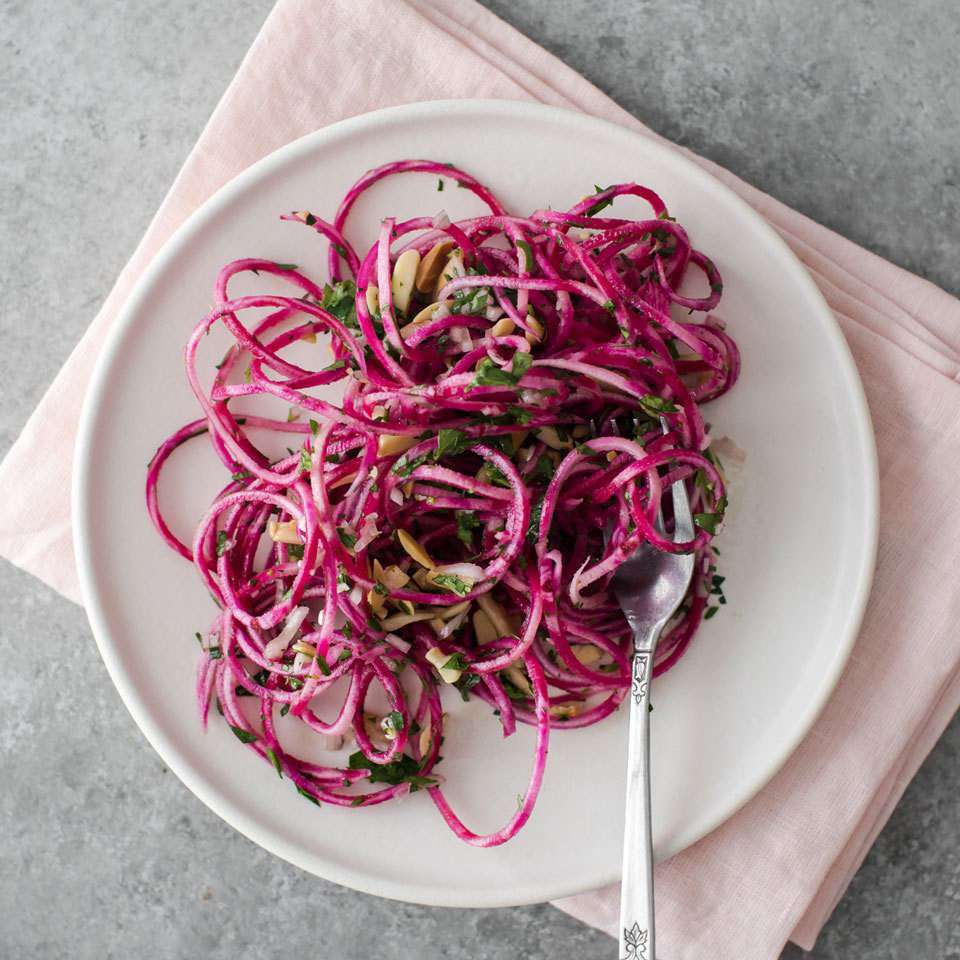
Yes, raw beets and beet greens are used in a variety of ways. Raw beet greens can be thinly sliced and used in a salad. Raw beets can be tough, so they need to be sliced or grated ultra-thin in order to be crispy and edible. They're great in slaws, salads and relishes.
Raw beets can also be spiralized. A spiralizer twists the beet into long, thin strands, which are chewy and crisp. Beet noodles can be served raw, tossed in a bit of creamy dressing or light vinaigrette.
Beet Nutrition Facts
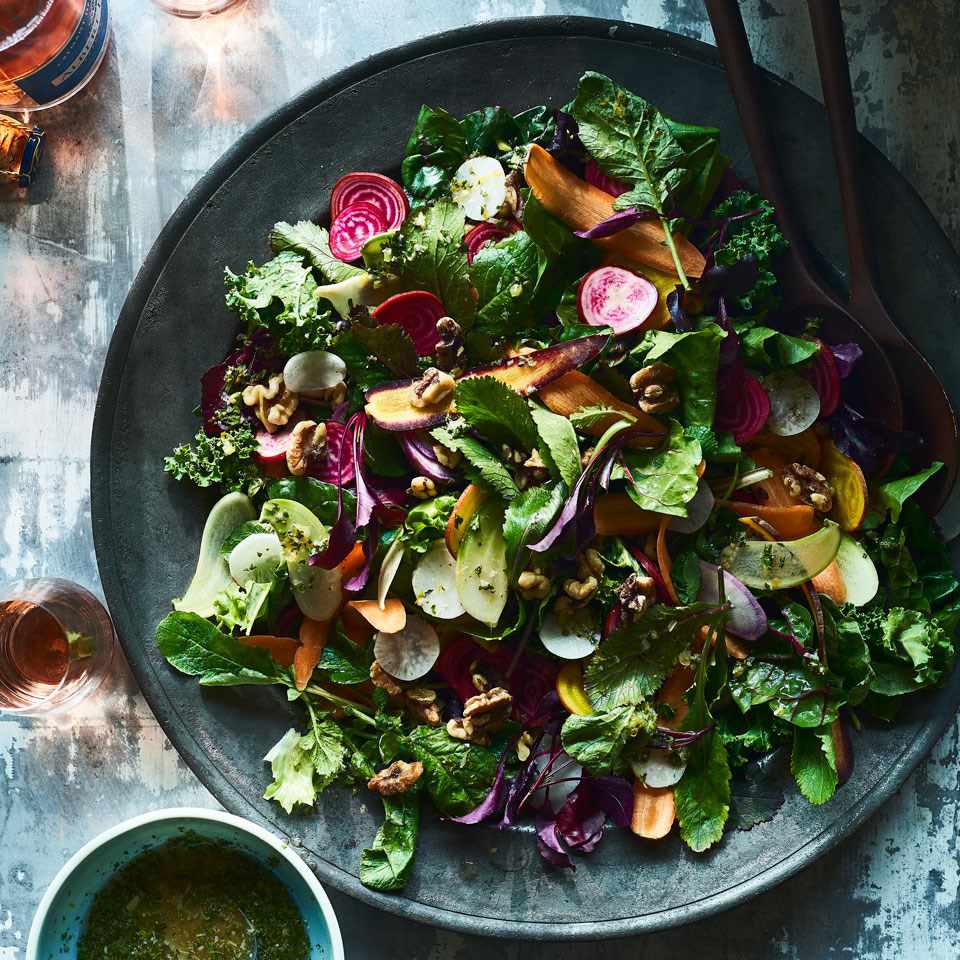
Beets are high in natural sugars, but they're also chock-full of vitamins and minerals and make a healthy addition to many meals.
One cup of cooked sliced beets provides 74 calories, 0 grams fat, 17 g carbs, 14 g total sugars, 3 g protein, 3 g fiber and 130 mg sodium. Beets are a great source of potassium, with 518 mg per cup. They also supply nitrate, a nutrient that's been shown to enhance exercise performance.
Beets are a great source of antioxidants, too, according to a 2015 study in the journal Nutrients. They have anti-inflammatory properties, which can cut down on damage to muscles and organs. They may also help protect your blood vessels from damage and reduce blood pressure.
How to Choose Beets at the Store
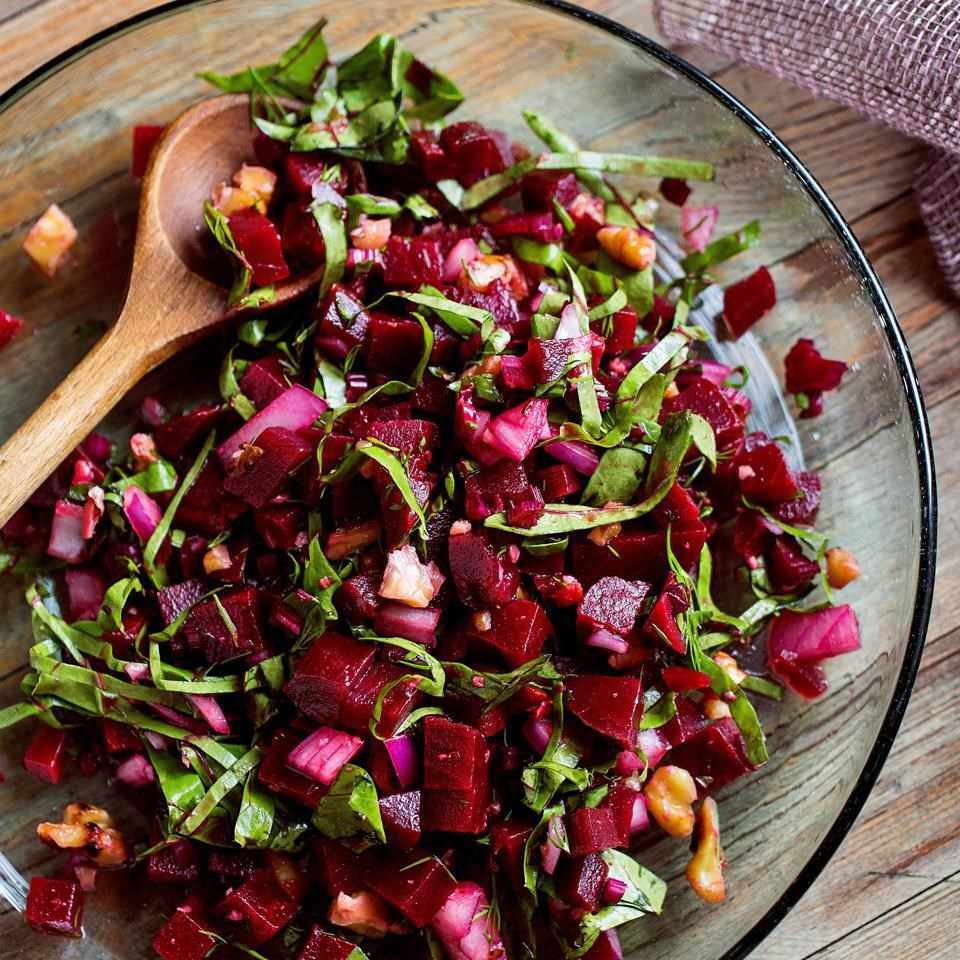
Beets range from radish-size bites to fist-size bulbs. For most preparations, small to medium beets are appropriate. Large beets are good for roasting because they can take the long, slow heat while staying toothsome and tender.
Whether they're red beets or golden beets, look for beets that are mostly unblemished, without cuts or dents in the skin. Whole beets should ideally still have the taproot, a long, thin root that hangs from the bottom of the beet.
If the beet greens are still attached, look for leaves that are vibrant and fresh, not wilted. Even if you don't plan to cook the beet greens, the leaves will give you an idea of how fresh the beets are.
How to Grow Your Own Beets
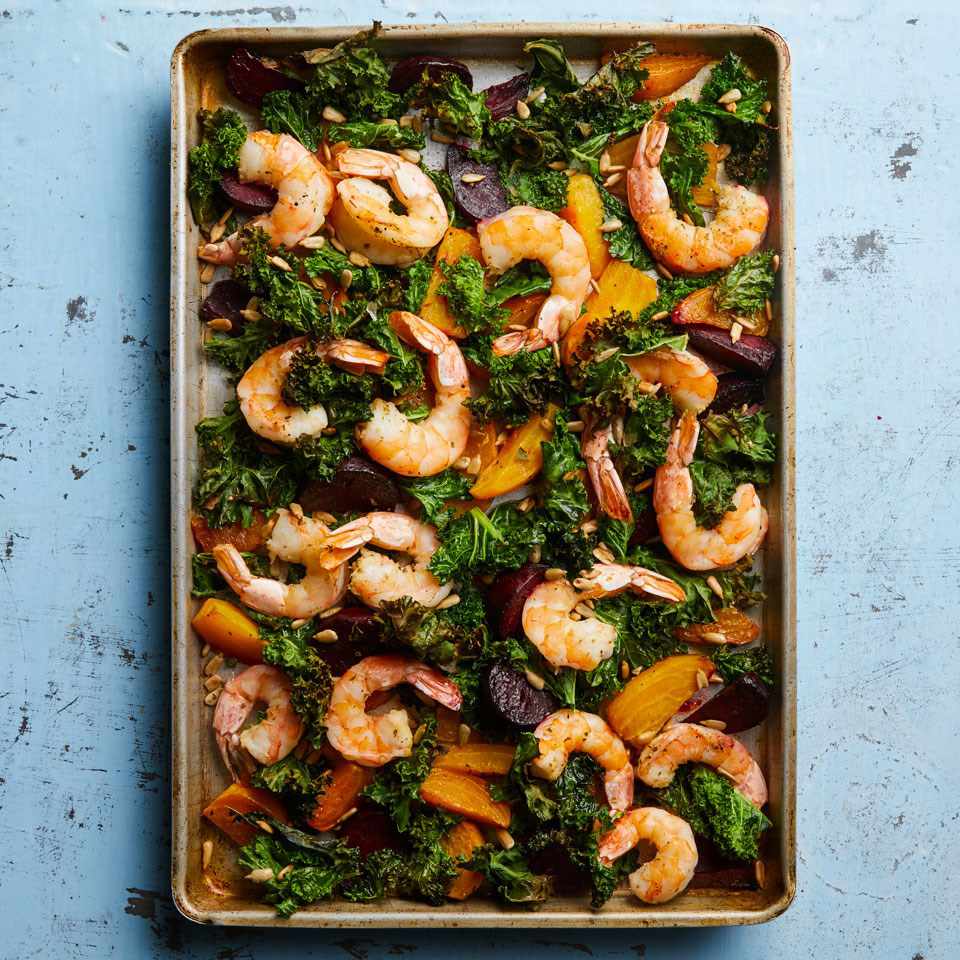
Beets are quite easy to grow if you have space for them to expand. Plant beets in the spring, just after the ground thaws. The bulbs prefer soil that is loamy (a moist mixture of dirt and sand), and they need some growing room. Plant seeds 1 inch deep about every 4 inches. Keep them in the sun and water consistently.
In about 8 to 10 weeks, your seeds will have transformed into beautiful beets, and they will be ready for harvest. You can start the process over again in the late summer for a wonderful fall crop.
This article was written by Lisa Kingsley and Kimberly Holland from EatingWell and was legally licensed through the NewsCred publisher network. Please direct all licensing questions to legal@newscred.com.


